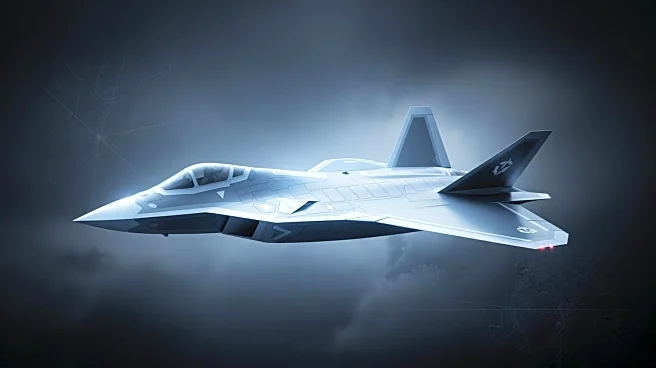What's Happening?
Israel is poised to maintain its military advantage in the Middle East despite the United States' decision to sell F-35 warplanes to Saudi Arabia. U.S. law ensures Israel's qualitative military edge, with
Israel currently being the sole operator of the advanced F-35 jets in the region. The Israeli government has expressed confidence in retaining access to superior U.S. weaponry, which is crucial for its defense strategy. This development follows President Trump's announcement of the sale, highlighting the complex dynamics of U.S. foreign policy in the Middle East. The sale is part of broader efforts to strengthen Saudi Arabia's military capabilities amid regional tensions.
Why It's Important?
The U.S. sale of F-35s to Saudi Arabia is significant for regional security and diplomatic relations. For Israel, maintaining its military superiority is vital for its security and strategic influence. The assurance from the U.S. reflects the strong bilateral ties and shared interests between the two nations. This move could affect U.S. relations with both Israel and Saudi Arabia, as it balances commitments to its allies. The sale also signals U.S. intentions to support Saudi Arabia's defense amid ongoing regional challenges, potentially reshaping alliances and power dynamics in the Middle East.
What's Next?
Israel will likely engage in further diplomatic discussions with the U.S. to ensure its military edge is preserved. The Israeli government may seek additional advanced weaponry or assurances to maintain its strategic advantage. Saudi Arabia's acquisition of F-35s could lead to enhanced military cooperation with the U.S., influencing regional security dynamics. Observers will be monitoring any changes in Saudi-Israeli relations, particularly as Saudi Arabia expresses interest in formalizing ties with Israel while advocating for Palestinian independence.









